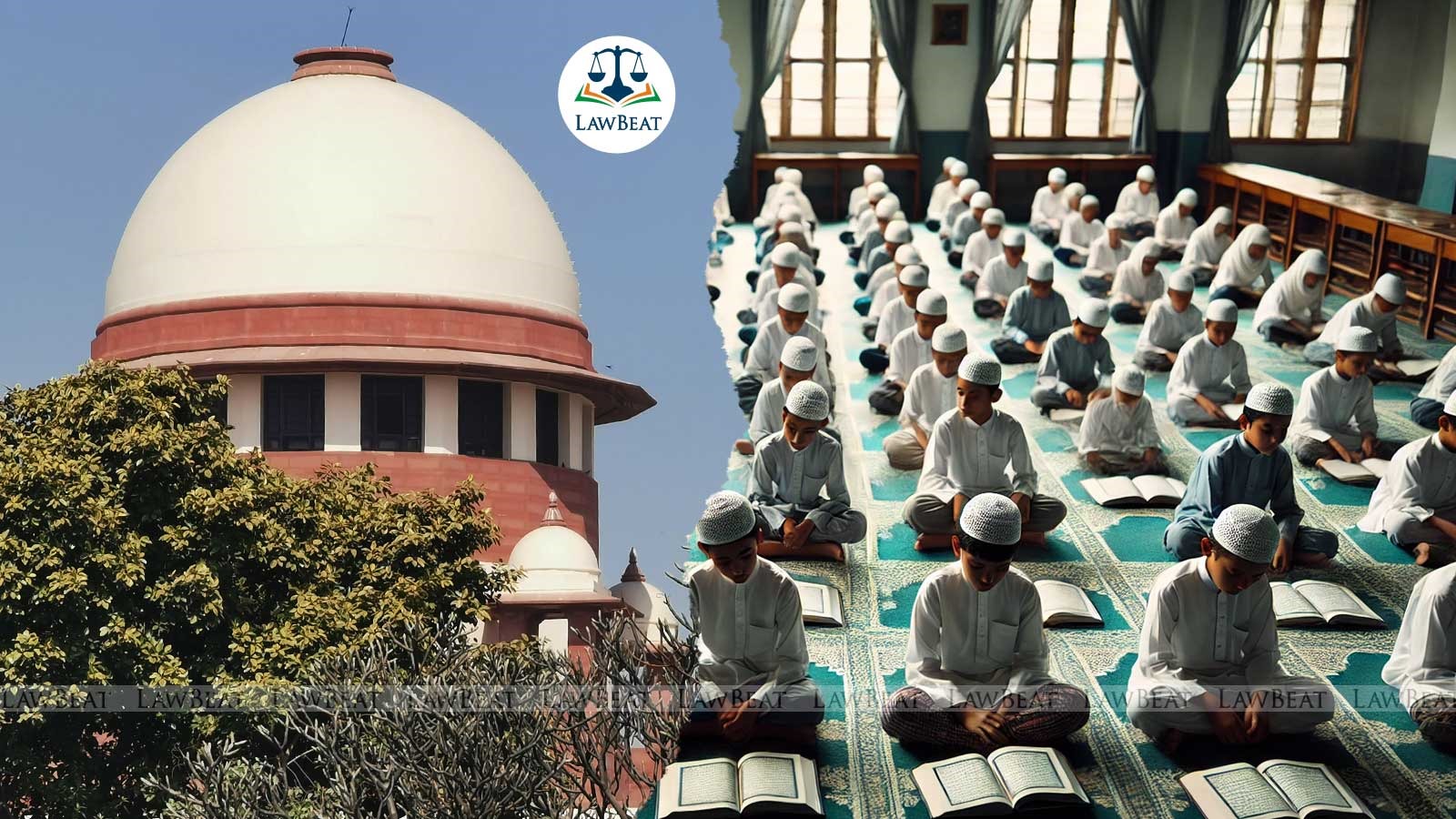"Is it not in national interest to recognize these Madrasas and regulate them?", SC reserves judgment

"Ultimately we have to see the broad sweep of the country...religious instruction is not only restricted to Muslim community, there are Sikhs, Parsis, Christians etc.....our country is a melting pot of cultures...we cannot put them in a silo", court has said.
Looking at the salutary purpose of the Madrasa Act, the Supreme Court today has questioned if it was not in the national interest to recognize the Madrasas and regulate them accordingly.
"You cannot just wish away hundreds of years of practise..if there is no regulation it would be a silo in itself..", CJI DY Chandrachud observed further.
Top Court has today reserved its judgment on the petition filed by one Anjum Kadari challenging the striking down of Uttar Pradesh Board of Madarsa Education Act 2004.
The bench further said that it has to make sure that basic minimum standard has to be maintained as every child may not want to be a religious teacher. "...one of them would say I have no interest in this and want to be a shopkeeper..but to throw out the entire Act means to THROW OUT THE BABY WITH THE BATH WATER..", CJI added.
Justice Pardiwala further questioned if it could be argued that all those students who decide to undertake education in these institutions it was detrimental to their interest and they were deprived.
Notably, State of Uttar Pradesh has told the Supreme Court that the Allahabad High Court's decision to strike down the entire Uttar Pradesh Board of Madarsa Education Act 2004 was not correct.
Additional Solicitor General KM Nataraj, appearing for the state government, submitted that striking down of entire Act was not at all correct and only some of the provisions should have been stuck down if needed.
The Supreme Court yesterday began hearing the SLP challenging Allahabad High Court’s judgement striking down the Uttar Pradesh Board of Madarsa Education Act 2004 as unconstitutional, for final disposal.
Senior Advocate Menaka Guruswamy opened the submissions on behalf of the petitioners submitting before court that while the dispute started before the High Court as a service dispute, the High Court went on to take suo moto cognizance and wrongfully strike down the Act.
In April this year, a bench of CJI DY Chandrachud, Justice Pardiwala and Justice Manoj Misra had stayed the judgment and issued notice in the Special Leave Petition filed challenging the High Court's decision.
CJI while staying the impugned judgment had noted that while the State has a legitimate public interest in thinking that students should be provided quality education that would help them to lead a life in the society, it would have to be considered if this requires the jettisoning of the whole Act.
Notably, State of UP had informed the bench that it had accepted the judgment of the Allahabad High Court striking down the Madarsa Act. "There will be no problem in absorbing the students...the matter requires consideration, I am not coming in the way of that..", ASG KM Nataraj had added.
The instant SLP has been filed by one Anjum Kadari through Advocate Sanjeev Malhotra challenging the high court’s judgement which struck down the act on the ground that the act is on the ground that the act is against the principles of secularism and articles 14, 21, 21A of the Indian Constitution.
A division bench of the high court comprising Justice Vivek Chaudary and Justice Subhash Vidyarthi passed the judgement in a petition filed by one Anushuman Singh Rathore who challenged the constitutionality of the UP Madarsa State Board Act 2004 and provisions of the Right of Children of Free and Compulsory Education Act 2012.
The high court said that it was not mandatory for a citizen of this country to be secular by nature and a citizen can have faith in his own religion or in some/every religion or may not have faith in any religion.
Additionally, the high court observed that it was clearly established that education under the Madarsa Act is certainly not equivalent to the education being imparted to the students of other regular educational institutions recognized by the State Primary and High School and Intermediate Boards and, therefore, the educations being imparted in Madarsas is neither ‘quality’ nor ‘universal’ in nature.
Case Title: Anjum Kadari vs. UOI
